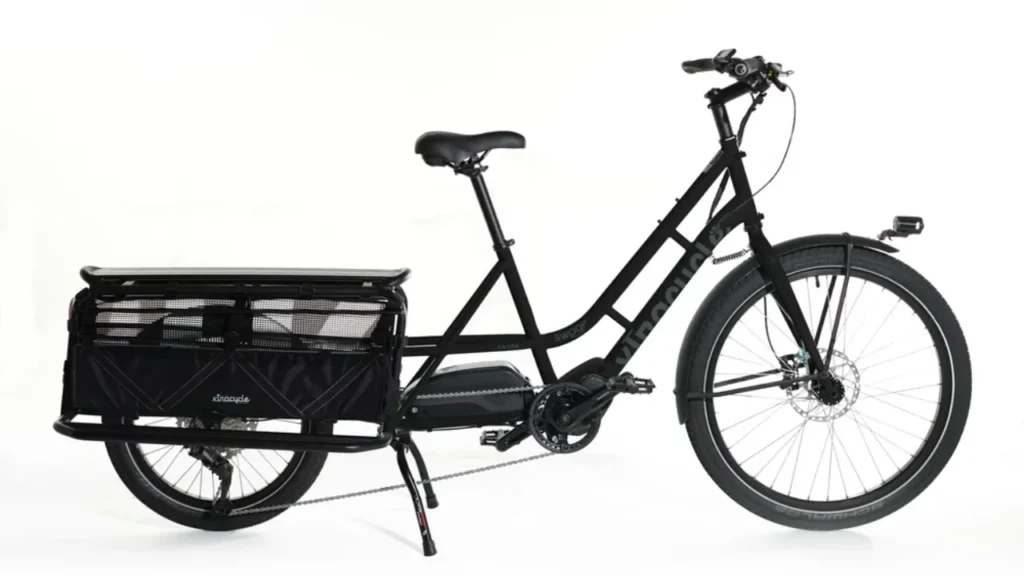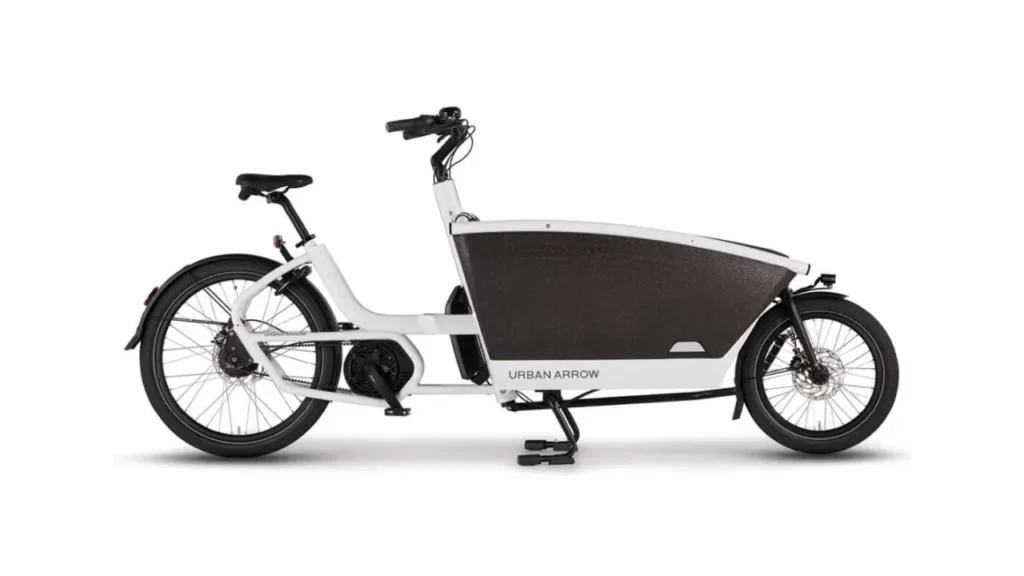The electric cargo bike market is set to boom and is on the verge of a major transformation—it’s no longer just a passing trend. These bikes are becoming a vital part of sustainable urban transportation.
A recent market report shows the global cargo bike market is projected to skyrocket from around USD 7.9 billion in 2024 to over USD 27 billion by 2034, reflecting a strong annual growth rate.
This impressive expansion is bound to bring about significant changes for urban riders, delivery services, and eco-conscious mobility advocates all around the globe. Cargo bikes are becoming the go-to solution for cleaner, more efficient city transport, reshaping how goods and people move in crowded urban environments.
Why Is the Electric Cargo Bike Market Growing So Fast?
There are several key factors fueling this surge in demand:
The Rise of E-Commerce and Last-Mile Delivery Needs
With online shopping booming like never before, businesses are on the hunt for efficient ways to get packages delivered quickly, all while avoiding traffic jams and minimizing pollution. Enter cargo bikes—these nimble, eco-friendly, and budget-friendly options are a perfect fit for bustling urban areas.
The Push for Sustainable Urban Transport
Cities worldwide are tightening the reins on vehicle emissions and traffic congestion. Electric cargo bikes are stepping up to the plate, cutting down on greenhouse gases and noise pollution, making them a favored choice for cleaner streets and healthier communities.
Government Incentives and Infrastructure Improvements
Many countries and cities are rolling out subsidies, tax breaks, grants, and investing in dedicated cargo bike lanes and charging stations. These supportive measures are making it easier for both businesses and everyday riders to hop on the cargo bike bandwagon.
Innovations in Electric Cargo Bike Design and Technology
Ongoing advancements in battery life, electric motors, frame materials, and cargo capacity are making modern cargo bikes more practical and appealing. With smart features and improved handling, the market keeps evolving and pushing forward.

Key Market Highlights by Region
United States
In the United States, cargo bike usage is steadily increasing, both in commercial delivery fleets and personal use, thanks to heightened awareness and supportive regulations.
Europe
Europe is witnessing a robust cargo bike market, particularly with electric models gaining traction due to government initiatives aimed at cutting down pollution and easing traffic congestion in cities. Plus, European consumers are really getting on board with sustainable transport trends.
Brazil and Poland
Brazil and Poland are at the forefront of growth, showcasing a strong early adoption of cargo bikes and the development of urban logistics ecosystems centered around them.
Asia-Pacific
The Asia-Pacific region is bursting with potential, driven by rapidly urbanizing populations, stricter environmental regulations, and a growing consumer appetite for eco-friendly transportation options.
- Also Read: Most Capable Cargo Ebike by Heybike
What This Means for Urban Riders and Businesses
For riders, cargo bikes are more than just a means to haul goods—they offer flexibility, convenience, and an eco-friendly way to navigate bustling streets. With electric models, riders can tackle longer distances and heavier loads without breaking a sweat.
For businesses, cargo bikes present an opportunity to lower delivery costs, shrink carbon footprints, and enhance last-mile logistics in crowded areas where vans and trucks often struggle. This is particularly crucial for local retailers, food delivery services, and couriers.
With the market projected to grow by over 13% each year for the next decade, we can expect to see a surge in electric cargo bikes on the roads worldwide, along with new features designed specifically for urban logistics. Plus, cargo bikes are increasingly being recognized as practical everyday vehicles for both business and personal use.
Certainly! Here is the rewritten text in the style of copywriter Shahzad Khan, using direct sentences, simple language, and fresh headings:

Top Cargo Bike Suppliers You Should Know
- Jiangsu Xinri E-Vehicle Co., Ltd
- Jinhua Jobo Technology Co., Ltd.
- CERO ELECTRIC CARGO BIKES
- Worksman Cycles
- DOUZE Factory SAS
- XYZ CARGO
- Butchers & Bicycles
- NIHOLA
- Yuba Electric Cargo Bikes
- Luxmea GmbH
- YOUMO XCYC
- Riese & Müller GmbH
These companies are at the forefront of the cargo bike industry, offering a diverse selection that ranges from electric models to classic cargo bikes, catering to various needs and preferences
- Also Read: Addmotor E-325 Electric Cargo Bike Review
How the Cargo Bike Market Breaks Down
By Product Type
Cargo bikes generally fall into three categories: two-wheeled, three-wheeled, and four-wheeled. Each type is designed for specific uses and can handle different load capacities.
By Propulsion
You have the option of going for traditional pedal-powered cargo bikes or opting for electric models that give you that extra push when you need it.
By Wheel Size
When it comes to wheels, cargo bikes come in sizes under 20 inches, between 20 and 26 inches, and over 26 inches. The size of the wheels can really impact how stable the bike feels and how comfortable your ride is.
By End User
These bikes cater to a wide range of users, including courier and parcel services, large retailers, personal transport, service delivery, and even municipal waste management.
By Region
The market is thriving in various regions, such as North America, Latin America, Western Europe, South Asia and the Pacific, East Asia, and the Middle East and Africa. Each area has its own unique growth trends and demand patterns.
This clear and straightforward breakdown helps you grasp the cargo bike market landscape and the key players involved.
- Also Read: Best Electric Bikes for Uber Eats
The Future of Electric Cargo Bikes
The rapid growth of the cargo bike market is a clear sign of a bigger trend towards smarter and cleaner ways to get around our cities. With technology advancing and infrastructure getting better, cargo bikes are poised to play a crucial role in tackling urban congestion and pollution.
But it’s not just about hauling goods; future models are expected to emphasize better connectivity, flexible designs, and integration with other transport networks, all aimed at creating a smoother urban travel experience.